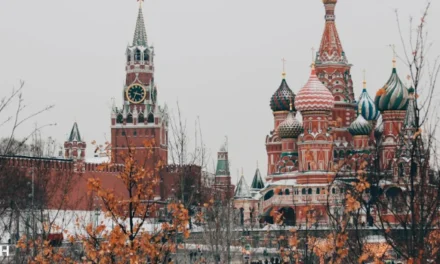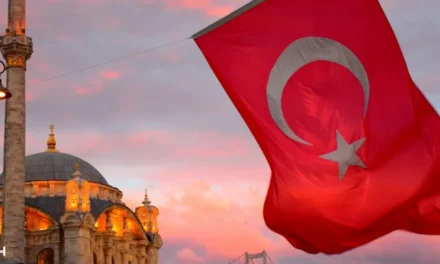The evolving dynamics of Middle Eastern geopolitics often raise the question: Does Oman support Israel? This article delves into Oman’s stance on Israel, examining historical context, current policies, and future prospects. We’ll explore the complexities of Omani-Israeli relations, public opinion, and the broader regional implications.
Historical Context of Oman-Israel Relations
Early Interactions
Initial Diplomatic Contacts
Oman and Israel first engaged diplomatically in the 1990s. In 1994, then-Israeli Prime Minister Yitzhak Rabin visited Oman, marking a significant step in their relations. This visit was followed by the opening of trade representative offices in 1996, which facilitated economic and technological cooperation between the two countries.
Trade and Cooperation
The trade agreements between Oman and Israel focused on sectors like water, agriculture, and technology. These early interactions laid the groundwork for potential future cooperation, despite the broader Arab-Israeli conflict.
Impact of Regional Politics
Influence of the Arab-Israeli Conflict
The broader Arab-Israeli conflict has significantly influenced Oman’s policies toward Israel. Oman has historically aligned with the Arab Peace Initiative, which calls for the recognition of Israel in exchange for the establishment of an independent Palestinian state.
Role of the Arab Peace Initiative
Oman’s support for the 2002 Arab Peace Initiative underscores its commitment to a peaceful resolution of the Israeli-Palestinian conflict. This initiative remains a cornerstone of Oman’s diplomatic stance.
Current Stance of Oman on Israel
Official Statements and Policies
Government Position
Omani officials have made several statements regarding their stance on Israel. For instance, Oman’s Foreign Minister, Yousouf bin Alawi, has called for wider recognition of Israel, emphasizing the need for peace and stability in the region. However, Oman has also maintained its support for Palestinian rights and the establishment of an independent Palestinian state.
Legislative Actions
In a significant move, Oman’s parliament voted to criminalize ties with Israel, reflecting the country’s cautious approach to normalization. This legislation amends a previous royal decree that banned interaction with Israel for both private and public figures.
Diplomatic and Economic Engagements
Airspace Permissions
In a notable gesture, Oman allowed Israeli civilian aircraft to traverse its airspace. This decision signals a degree of openness towards Israel, despite the lack of formal diplomatic relations.
Economic Cooperation
While formal diplomatic ties remain absent, Oman and Israel have engaged in economic cooperation in various sectors. These interactions highlight the potential for future collaboration, contingent on broader regional developments.
Public Opinion in Oman Regarding Israel
General Sentiment
Public Polls and Surveys
Public opinion in Oman regarding Israel is mixed. Surveys indicate that many Omanis remain skeptical of normalization, largely due to solidarity with the Palestinian cause. This sentiment is reflected in the strong public reaction to an Omani blogger’s visit to Israel, which was widely criticized as an act of normalization.
Social Media Reactions
Social media platforms in Oman have been abuzz with discussions about Israel. Many users express disapproval of normalization efforts, emphasizing the need to support Palestinian rights and resist Israeli occupation.
Cultural and Social Factors
Influence of Palestinian Solidarity
Solidarity with Palestinians plays a crucial role in shaping public opinion in Oman. The cultural and historical ties between Oman and Palestine reinforce the public’s support for Palestinian rights.
Media and Education
Media and educational narratives in Oman often highlight the Palestinian struggle, further influencing public perceptions of Israel. These narratives contribute to a cautious approach towards normalization.
Regional and International Influences
Role of the United States
US Diplomatic Pressure
The United States has played a significant role in encouraging normalization between Israel and Arab states. Oman’s foreign policy has been influenced by US diplomatic efforts, although Muscat has maintained a balanced approach.
Strategic Alliances
Oman’s strategic alliances with the US and other Western countries impact its policies towards Israel. These alliances necessitate a careful balancing act to maintain regional stability.
Relations with Other Gulf States
Comparison with UAE and Bahrain
Oman’s approach to Israel differs from that of the UAE and Bahrain, both of which have normalized relations with Israel under the Abraham Accords. While Oman has shown signs of openness, it has not fully embraced normalization.
Regional Integration Efforts
Oman’s cautious stance on normalization is influenced by its desire to maintain regional integration and stability. The country aims to balance its relations with Israel while preserving its ties with other Gulf states and Iran.
Future Prospects of Oman-Israel Relations
Potential for Normalization
Indicators of Change
Several indicators suggest that Oman might move towards normalization with Israel in the future. These include economic cooperation, airspace permissions, and diplomatic engagements.
Obstacles to Normalization
However, significant obstacles remain. Public opinion, regional politics, and the unresolved Israeli-Palestinian conflict pose challenges to full normalization.
Impact on Regional Stability
Peace Process Contributions
Oman has the potential to play a constructive role in facilitating Israeli-Palestinian peace talks. Its balanced approach and diplomatic experience make it a valuable mediator in the region.
Broader Geopolitical Implications
Changes in Oman-Israel relations could have far-reaching implications for regional stability. A shift towards normalization could influence other Arab states and impact the broader Middle Eastern geopolitical landscape.
Conclusion
Summary of Key Points
Oman’s stance on Israel is shaped by a complex interplay of historical, political, and social factors. While the country has shown signs of openness, it remains cautious about full normalization.
Final Thoughts
The future of Oman-Israel relations will depend on various factors, including regional developments, public opinion, and the progress of the Israeli-Palestinian peace process. As the Middle East continues to evolve, Oman’s balanced approach will be crucial in navigating these complexities.
Additional Resources
Further Reading
- Books: “The Arab-Israeli Conflict: A History” by Ian J. Bickerton
- Articles: “Oman and the Middle East: A Diplomatic Balancing Act” by the Middle East Institute
FAQs: Does Oman support Israel?
Oman has maintained a neutral stance towards Israel. While Oman has engaged in some level of contact and discussions with Israeli officials, it has not officially recognized the state of Israel or established diplomatic relations.
What is Oman’s position on the Palestinian cause?
Oman historically supported the Palestinian cause for statehood and has expressed solidarity with the Palestinian people. The Sultanate of Oman has advocated for a peaceful resolution to the Israeli-Palestinian conflict.
Has Oman ever considered normalizing relations with Israel?
There have been reports of Oman considering the possibility of normalizing relations with Israel in the past. However, as of now, Oman has not taken any concrete steps to officially recognize or establish diplomatic ties with Israel.
How do other Arab countries perceive Oman’s interactions with Israel?
Oman’s interactions with Israel have been met with mixed reactions from other Arab countries. Some view Oman’s engagement as a potential step towards regional peace, while others criticize it for not fully supporting the Palestinian cause.
What have been the major obstacles preventing Oman from openly supporting Israel?
Oman’s historical ties to the Arab League and its commitment to the Palestinian cause have been key obstacles in openly supporting Israel. The Arab League has traditionally upheld a boycott of Israel, which influences Oman’s stance on the issue.
Are there any ongoing discussions between Oman and Israel?
While there have been sporadic discussions and meetings between Omani and Israeli officials, there are no formal diplomatic relations established between the two countries. Any contacts between Oman and Israel have generally been low-key and not publicly disclosed.
How has Oman’s relationship with Israel evolved over time?
Oman’s relationship with Israel has seen some fluctuations over time. While there have been periods of increased dialogue and engagement, Oman has refrained from making any significant commitments towards formalizing relations with Israel.





